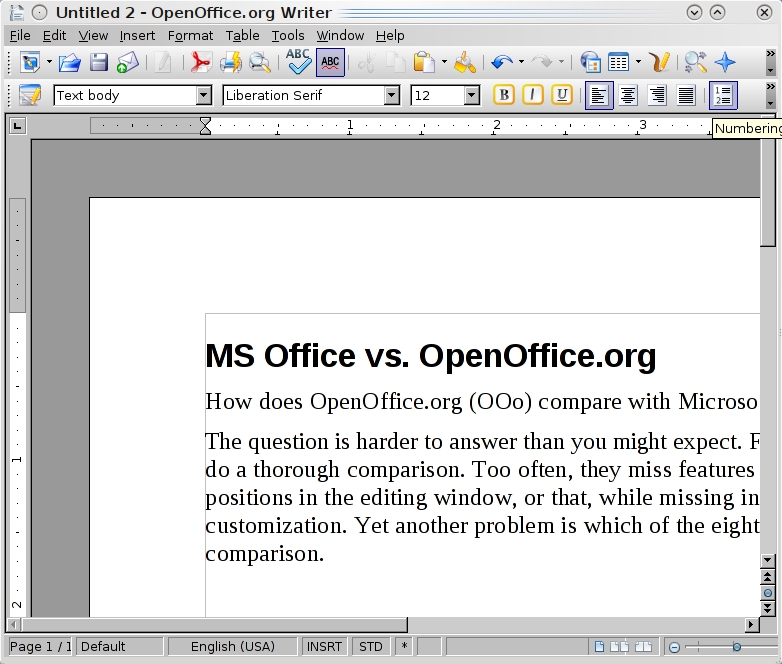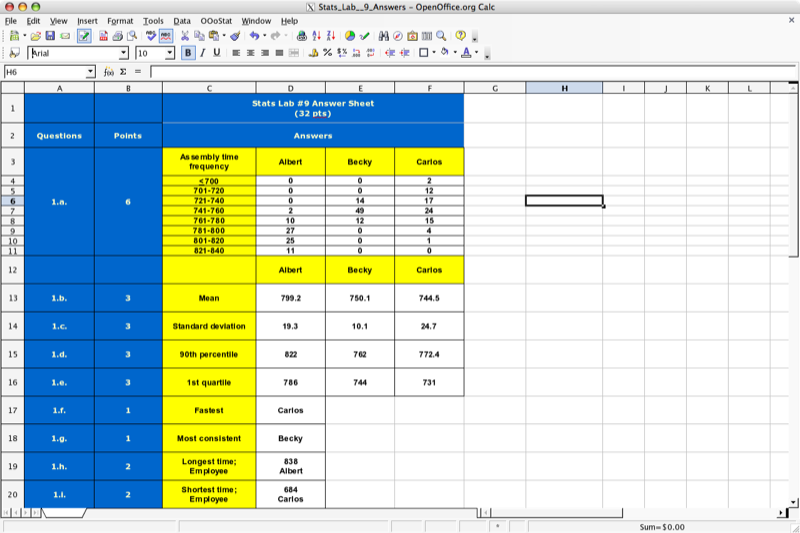

My take on which to use: MS Word/Libreoffice Then I moved on to better environments - I wrote my PhD dissertation in latex. I wrote my master's report in Microsoft word. (As question is about three specific office packages, references to LaTeX is avoided which may be the best choice, irrespective of one's field of work/typesetting environment as has already pointed out.) If typesetting and publishing are done by self/in-house, compatibility is not an issue and any package is as good as any other package. So considering the fact that the academic work always reach a different kind of post-processing mechanism, it is better to use the most popular package, MS Office. MS Office cannot function natively on Linux systems. If one has to work in different OS's compatibility issues comes in there as well. If the collaborator uses a different package, compatibility is a big problem. The equation either get converted as a figure or appear scrambled when opened in a non-native package. This is because the equation editor that comes with OpenOffice or LibreOffice is not compatible with MS Office and vice versa. In that case it better to opt for MS Office (along with MathType). Say, for example if you are in Science esp in Physics or Mathematics, most of your academic writing will have lot of equations. Native formats of OpenOffice or LibreOffice are not supported in most DTP centres/print or publishing houses. Most journals or conferences accept manuscripts in DOC or DOCX format other than TeX. The answer depends a lot on one's field of work, where the end product will appear, whether the collaborator's mutually agree upon the package and finally the OS one use. Unless you're doing equations-LaTeX still does those enough better that you may as well just use it regardless. But it does take a non-negligible amount of time to learn, so if you're too impatient to learn new skills or under a very tight time deadline right now, LaTeX is not for you. etc., and import them with a cut and paste. * Once you know LaTeX, everything is faster and easier, especially because you can save old solutions for formatting, shortcut macros, etc. Kind of sad, but that's the way things are (and have been for the past decade).
#2017 microsoft office vs openoffice full#
And so either your manuscript will be full of errors that you have to hope you will catch and correct when you get page proofs, or you will have to end up using Word anyway. (I have tried repeatedly.) It's not that OpenOffice/LibreOffice can't do the right thing, it's that the journals only support Word. OpenOffice and LibreOffice are not yet compatible enough for publication-quality work. doc files and only some take other formats. If you are in any non-equation-heavy field, use MS Office, for the simple reason that every journal takes.

Use a front end like LyX if you want some WYSIWYGness.

Otherwise you will not be writing your equations rapidly or with ease (compared to those who know LaTeX)*. If you are in a field with lots of equations, the journals you are going to publish in will almost certainly take.


 0 kommentar(er)
0 kommentar(er)
